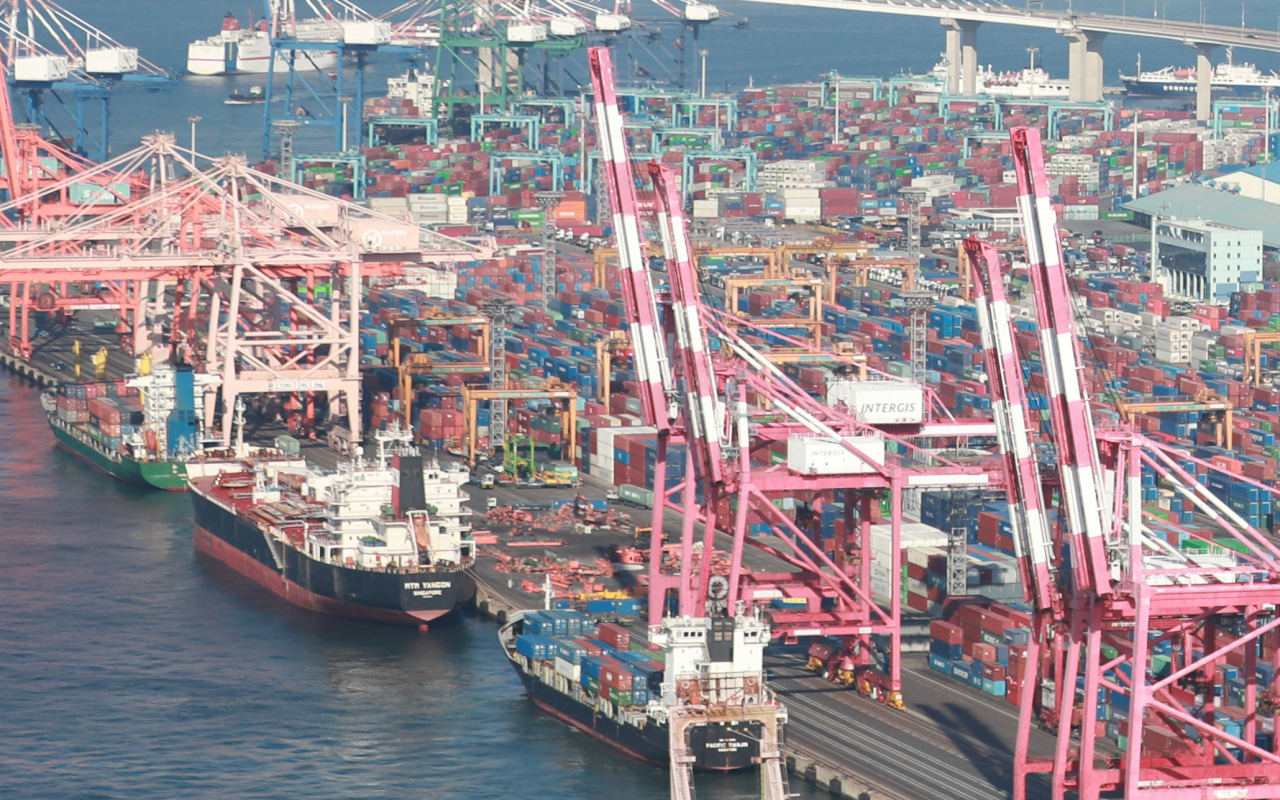China’s reopening has limited impact on S. Korea: BOK
Concerns mount over South Korea's chip export slump, low recovery of Chinese tourist numbers
By Im Eun-byelPublished : April 17, 2023 - 15:45

China's reopening has shown limited effects on the South Korean economy, dampening expectations that it would reignite tourism and export industries, a report by the Bank of Korea showed Monday.
The trade balance with China, which had been worsening since April last year due to China's lockdowns, failed to make a rebound despite the easing of COVID-19 measures in December, the report said.
The trade deficit with China stood at $7.85 billion in the first three months of 2023, following a deficit of $2.62 billion in the last three months of 2022. The deficit also worsened from the surplus of $5.84 billion in the same period in 2022.
The BOK explained one of the reasons that the trade balance has not been able to recover is that China’s recent growth was led by its domestic consumption, resulting in limited impact on Korea, a nation heavily dependent on exports to China in manufacturing and information technology industries.
As an analysis on multiregional input-output tables by the BOK showed, when China’s economy grows by 1 percentage point based on manufacturing, the economy of countries like Korea’s grows by an average of 0.13 percentage points. But when China’s economy grows by 1 percentage point based on services, the growth is limited to 0.08 percentage points.
China’s high inventory in the manufacturing business is another reason for the slow growth in the Korean economy. As China holds sufficient inventory in goods related to IT production, its import demand for intermediate goods from Korea has been low.
"China's inventory in IT-related products is 140 percent of the average from 2015 to 2019. As the IT industry rebounds in the second half of 2023, China's inventory in semiconductor-related products will be adjusted," Yim Geun-hyung, head of the international trade team at the BOK, said.
Additionally, China’s "guochao movement" which encourages the consumption of domestic goods, has led to low demands for Korean goods as well, the BOK assessed.
The return of Chinese tourists to Korea has also been slow.
Despite reopening the country, the Chinese government has not yet allowed group tours to Korea. The number of flights connecting Korea and China have not yet returned to pre-pandemic levels.
Contrary to the rapid increase in tourists from Japan and Southeast Asia, tourism demand from China has been slow to recover, the report said.
In comparison, more Koreans are departing on overseas trips. The number of international flight passengers during the first three months of 2023 rose to 69 percent of the same period in 2019, making a substantial move towards pre-pandemic levels.
Due to the absence of Chinese tourists and fast-growing overseas tourism demand from Korea, the tourism balance is expected to have worsened during the first three months of 2023 from the fourth quarter of 2022 by $600 million. The exact numbers have not yet been released.
The BOK said Korea’s trade with China will improve in the second half of 2023 as the IT industry recovers and China adjusts its inventory. Korea pins high hopes on the recovery of the IT industry as major chip players, including tech giant Samsung, are to cut production, the central bank said. The timing of the recovery, however, remains uncertain.
“Export outlooks with China are still uncertain due to the timing of the recovery of the global IT industry and changes in the industrial structure of China,” Yim said.


![[AtoZ into Korean mind] Humor in Korea: Navigating the line between what's funny and not](http://res.heraldm.com/phpwas/restmb_idxmake.php?idx=644&simg=/content/image/2024/04/22/20240422050642_0.jpg&u=)


![[Herald Interview] Why Toss invited hackers to penetrate its system](http://res.heraldm.com/phpwas/restmb_idxmake.php?idx=644&simg=/content/image/2024/04/22/20240422050569_0.jpg&u=20240422150649)
![[Graphic News] 77% of young Koreans still financially dependent](http://res.heraldm.com/phpwas/restmb_idxmake.php?idx=644&simg=/content/image/2024/04/22/20240422050762_0.gif&u=)

![[Exclusive] Korean military set to ban iPhones over 'security' concerns](http://res.heraldm.com/phpwas/restmb_idxmake.php?idx=644&simg=/content/image/2024/04/23/20240423050599_0.jpg&u=20240423171347)






![[Exclusive] Korean military to ban iPhones over security issues](http://res.heraldm.com/phpwas/restmb_idxmake.php?idx=652&simg=/content/image/2024/04/23/20240423050599_0.jpg&u=20240423171347)



![[Today’s K-pop] Ateez confirms US tour details](http://res.heraldm.com/phpwas/restmb_idxmake.php?idx=642&simg=/content/image/2024/04/23/20240423050700_0.jpg&u=)